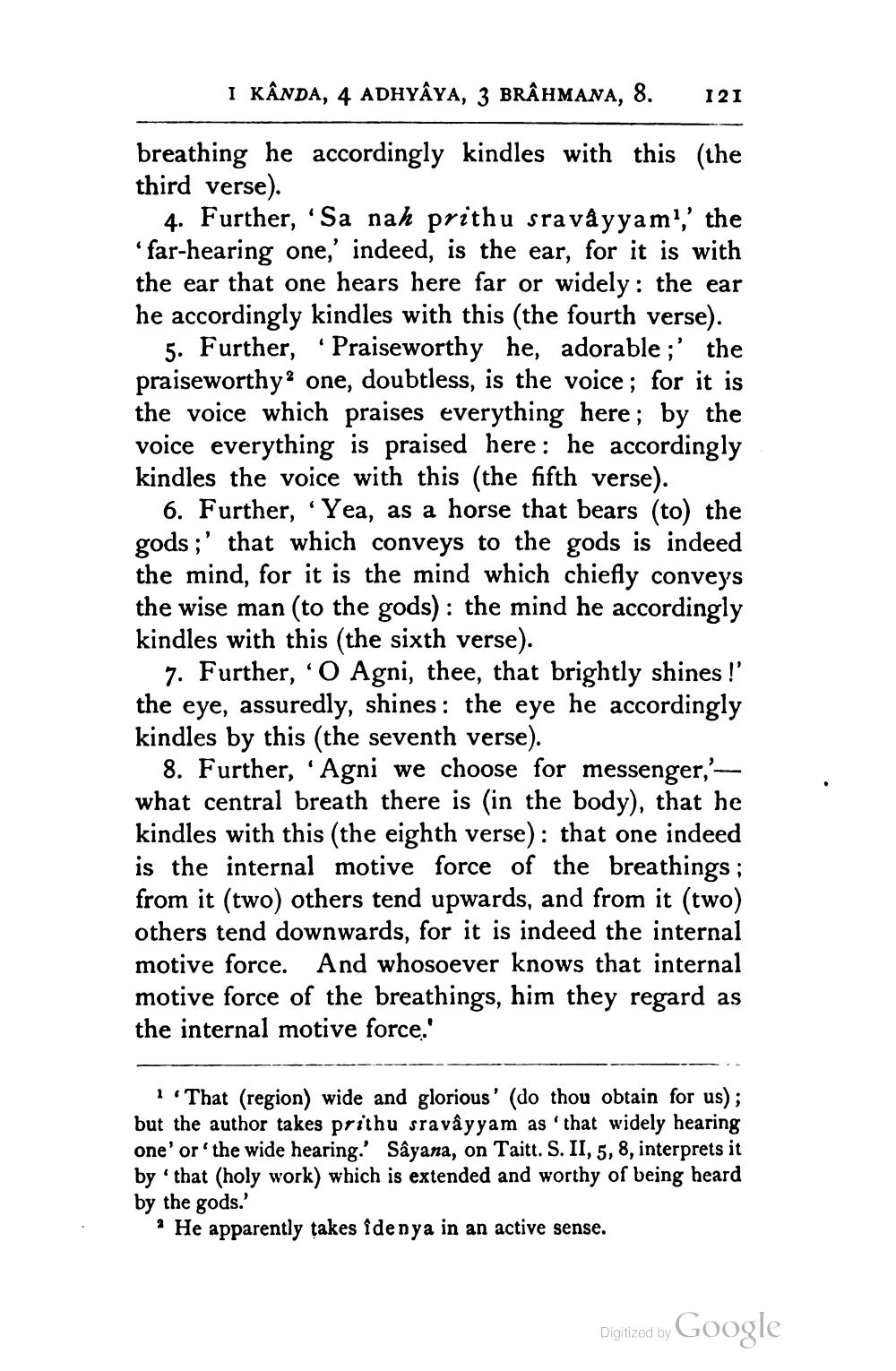________________
I KÂNDA, 4 ADHYAYA, 3 BRAHMANA, 8.
121
breathing he accordingly kindles with this (the third verse).
4. Further, 'Sa nah prithu sravâyyam,' the 'far-hearing one,' indeed, is the ear, for it is with the ear that one hears here far or widely: the ear he accordingly kindles with this (the fourth verse).
5. Further, 'Praiseworthy he, adorable;' the praiseworthy? one, doubtless, is the voice; for it is the voice which praises everything here; by the voice everything is praised here: he accordingly kindles the voice with this (the fifth verse).
6. Further, ‘Yea, as a horse that bears (to) the gods ;' that which conveys to the gods is indeed the mind, for it is the mind which chiefly conveys the wise man (to the gods) : the mind he accordingly kindles with this (the sixth verse).
7. Further, 'O Agni, thee, that brightly shines!' the eye, assuredly, shines: the eye he accordingly kindles by this (the seventh verse).
8. Further, 'Agni we choose for messenger,'what central breath there is (in the body), that he kindles with this (the eighth verse): that one indeed is the internal motive force of the breathings; from it (two) others tend upwards, and from it (two) others tend downwards, for it is indeed the internal motive force. And whosoever knows that internal motive force of the breathings, him they regard as the internal motive force.'
1.That (region) wide and glorious' (do thou obtain for us); but the author takes prithu sra vâyyam as 'that widely hearing one' or 'the wide hearing.' Sayana, on Taitt. S. II, 5, 8, interprets it by that (holy work) which is extended and worthy of being heard by the gods.'
· He apparently takes idenya in an active sense.
Digitized by Google




